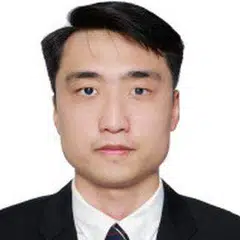Can South Korea's Yoon and China's Xi denuclearise North Korea?
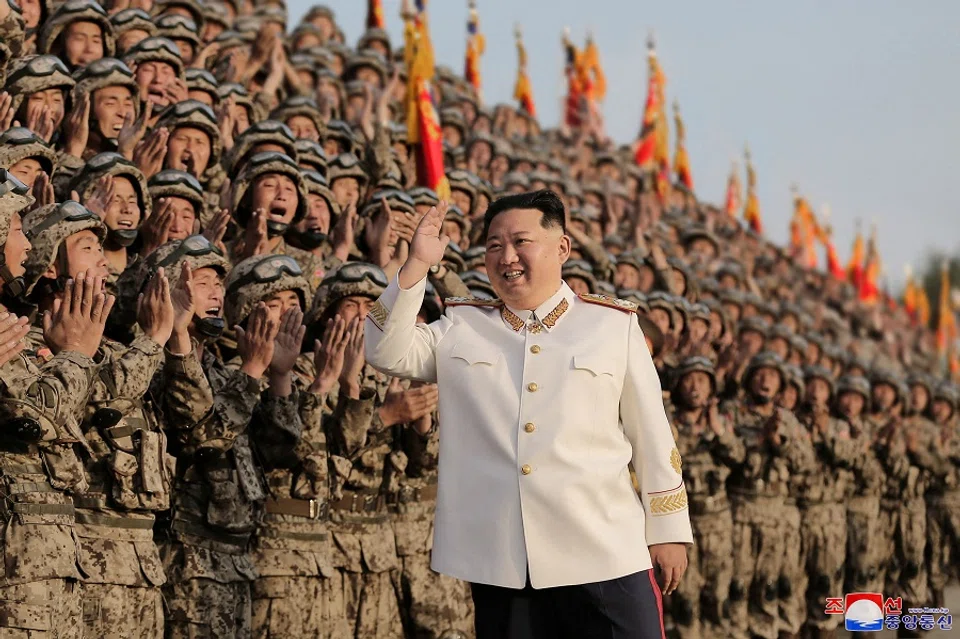
North Korea's recent advancement in missile technology has raised concerns among its neighbours about the possibility of denuclearisation on the Korean peninsula. Since January 2022, North Korea has conducted tests for various missile types including the latest hypersonic, short-range and intermediate-range ballistic missiles.
In January alone, Pyongyang launched seven missile tests - the most frequent missile tests it has conducted within a month. In the following months, it tested the Hwasong-15 intercontinental ballistic missiles (ICBM) though claiming it was a "reconnaissance satellite" or the latest Hwasong-17. (NB: Its neighbours say that it conducted yet another missile test in early May.)
North Korea's escalating provocations once again make cooperation between the former "six-party talks" countries - South and North Korea, the US, China, Japan and Russia - an apparently viable means to restrain Pyongyang.
Right after winning the election on 9 March 2022, South Korean President-elect Yoon Suk-yeol and Chinese President Xi Jinping had a historic phone call and agreed to cooperate on North Korea's denuclearisation.
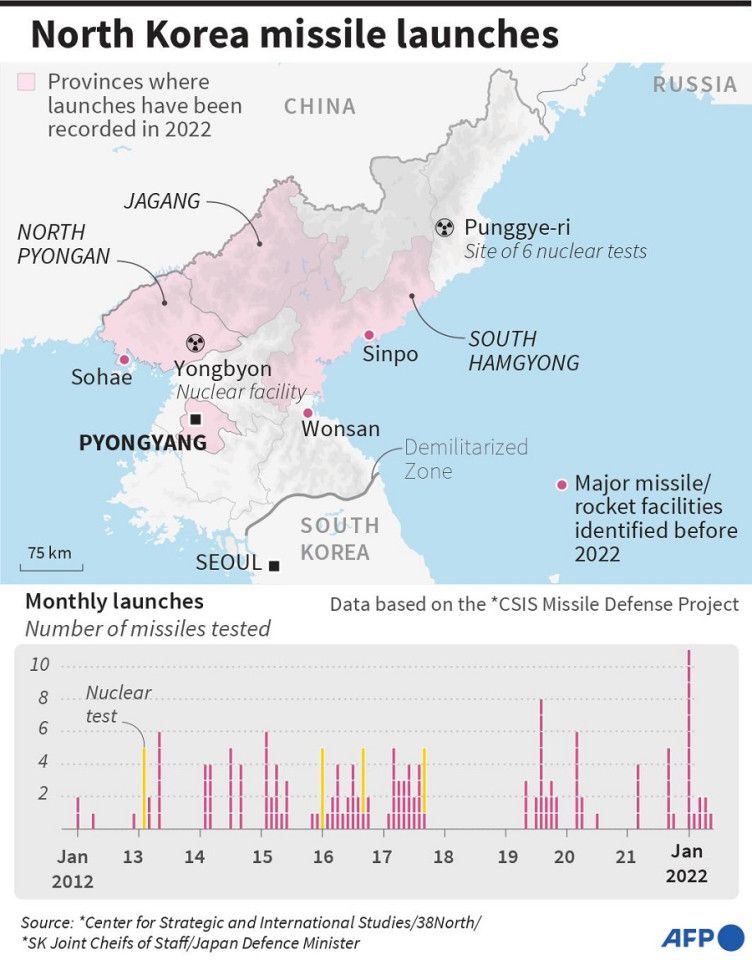
A phone call between Xi Jinping and a foreign president-elect, a novice in politics, is unprecedented. It demonstrates that China values the result of the South Korean presidential election and sees it as significant to its foreign policy in the Asia-Pacific.
However, Yoon's China-sceptic foreign policy pledges were very clear from the beginning. Observers have been speculating about how South Korea would handle its delicate relations with China, and believe that the bilateral relationship would likely be very different to that during the days of the Moon Jae-in administration. Moon is known for being friendly to Beijing and choosing "strategic ambiguity" as his core foreign policy mantra amid escalating US-China competition.
China has been unwilling to work with democratic countries in denuclearising North Korea of late under the current ideological schism.
China moving closer to Russia and further from South Korea
Despite Pyongyang's unprecedented advancement in military nuclear technology, increasing tension between democracy and authoritarianism has rendered international peace efforts futile. China has been unwilling to work with democratic countries in denuclearising North Korea of late under the current ideological schism.
In March, China and Russia opposed US proposals for a UNSC resolution strengthening sanctions on North Korea after its ICBM launch and continue to do so, unlike the times in 2016 and 2017 when they voted in favour of UNSC resolutions sanctioning North Korea.
The Russian invasion of Ukraine has accelerated the rivalry. North Korea's strategic importance to China and Russia strengthens the trilateral relationship between them and would lead North Korea to view South Korea and the US's pledge to denuclearise North Korea with even more scepticism.
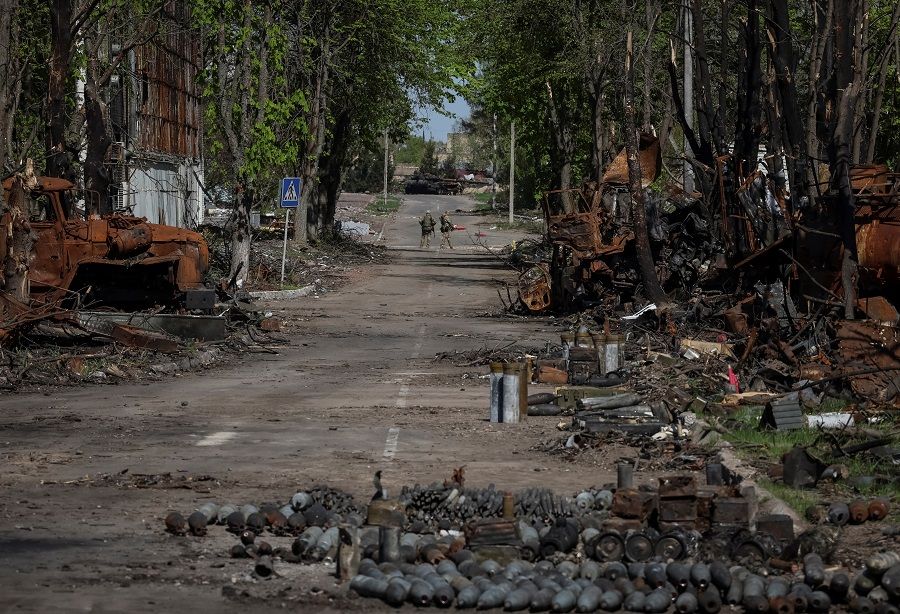
Yoon's US-leaning foreign policy proposals are also likely to enrage Beijing while increasing North Korea's strategic importance in Beijing's eyes. During his presidential campaign, Yoon pledged to implement stronger deterrence measures against North Korea's provocations. His plan includes strengthening missile defence capabilities and expanding the ROK-US relationship into a more comprehensive system that encompasses security, diplomacy, economy and trade.
Yoon is a firm believer of an additional missile defence system to protect his country and people. Yet recent fallouts indicate that such moves would surely infuriate China.
Yoon's stance could jeopardise cooperation on North Korea
Yoon also stressed the importance of an additional deployment of THAAD for defending the Seoul metropolitan area against possible North Korean missile launches. He argued that the current THAAD batteries in Seongju, which is located in the country's southwest and 217km away from the capital, are incapable for the job. Under the "building peace through power" pledge, Yoon is a firm believer of an additional missile defence system to protect his country and people.
Yet recent fallouts indicate that such moves would surely infuriate China. South Korea suffered a series of unofficial sanctions from Beijing in 2017 over the deployment of the very same defence system. Although the Moon administration responded by adopting a "three Nos" policy that excused South Korea from the US's missile defence programme, capped THAAD and stalled a trilateral alliance with the US and Japan, Beijing never lifted its unofficial sanctions.
Yoon also hinted at the prospect of South Korea expanding its cooperation with the Quad. During an interview with The Wall Street Journal, Yoon said South Korea would "positively review joining" the Quad if invited, and is keen to broaden its role in the US-led security dialogue. The summit between Yoon and Biden in May 2022 may also draw South Korea closer to the US, which would in turn certainly intensify existing tensions with Beijing.
Though North Korea recently resumed cross-border trade with China, communication between Pyongyang, Seoul and Washington is still non-existent.
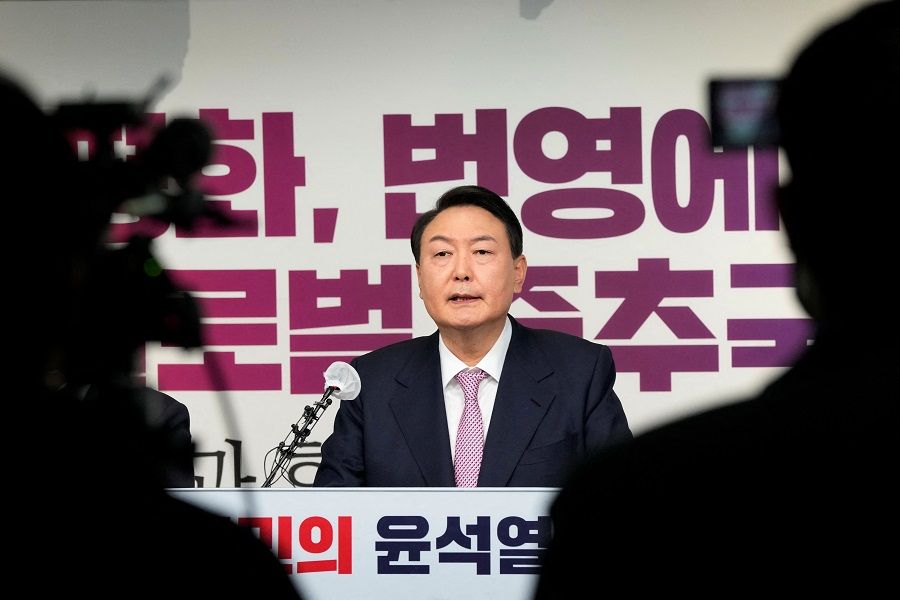
North Korea has withdrawn from all dialogues with South Korea and the US since the failed 2019 US-DPRK summit in Hanoi, and instead, has chosen to double down on buttressing its missile technology.
In a dramatic manner, it sent a clear message to Seoul that it has no interest in engagement when it demolished the inter-Korea joint liaison office in Panmunjom in June 2020. The 8th Congress of the Workers' Party of Korea in January 2021 also conveyed North Korea's resolve in beefing up its defence capabilities, which includes developing the hypersonic missiles we have seen in recent test launches.
The stalemate became more evident during the Covid-19 pandemic when North Korea closed off all of its borders with China and Russia and isolated itself from the rest of the world. Though North Korea recently resumed cross-border trade with China, communication between Pyongyang, Seoul and Washington is still non-existent.
Kim Jong-un's recent expression of interest to Moon Jae-in about restoring severed inter-Korea relations seems meaningless, considering Kim's subsequent remarks on further strengthening North Korea's nuclear deterrence capabilities and the recent missile launches.
China remains power relied on by North Korea
In the meantime, Chinese president Xi Jinping has given his support to the North Korean leader and stressed the significance of cooperation between the two countries. According to North Korean state media KCNA, Xi said China is ready to build a new phase of China-North Korea relations of "friendship and cooperation" under a "new situation" - a euphemism for their shared rivalry against democratic countries.
The apparent new start with Yoon taking office does not hide the security deadlock still evident on the Korean peninsula.
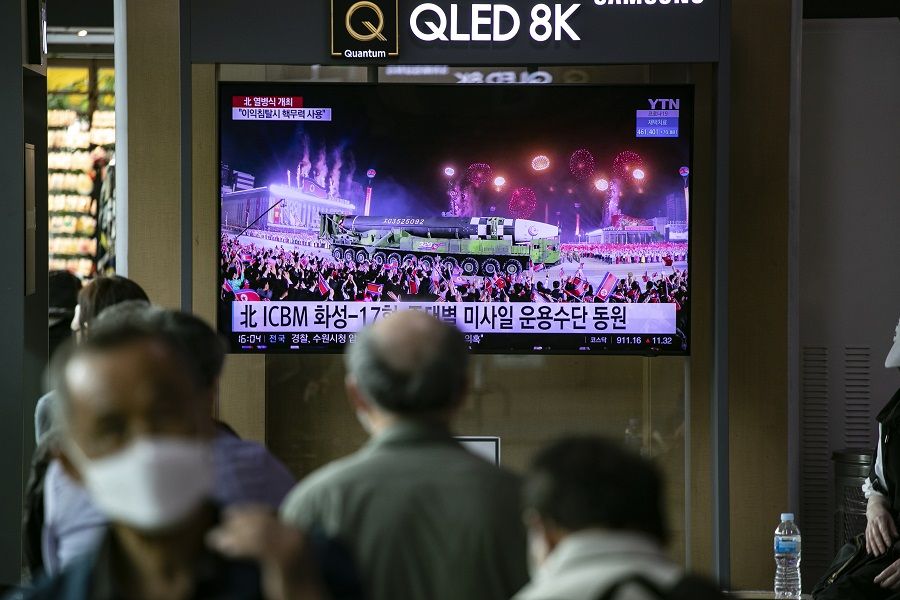
Kim gave a similar verbal message to Xi earlier, vowing to strengthen cooperation with China and "frustrate" threats and hostile policies from the US and its allies while praising the Beijing 2022 Olympic Games despite the "hostile forces' manoeuvres".
The apparent new start with Yoon taking office does not hide the security deadlock still evident on the Korean peninsula. The current geopolitical tensions remain, with Kim Jong-un unwilling to negotiate and the THAAD still a thorny issue that no side is willing to back down on. Years of pampering by the Moon administration has only emboldened Pyongyang in buttressing its nuclear recklessness with no incentives to back down.
The acute geopolitical rivalry evident after Russia's invasion also shows that cooperation and dialogues within the Russo-China sphere, of which DPRK is a part, is near impossible.
Yoon's deviation from his appeasing predecessor's stance shows that the lack of goodwill between Beijing and Seoul will only intensify. His insistence on deploying additional THAAD and strengthening the US-ROK military alliance and his hint of joining the Quad suggest an independent and assertive South Korean leadership is formulating - something that a power-jealous Beijing can never tolerate.
The acute geopolitical rivalry evident after Russia's invasion also shows that cooperation and dialogues within the Russo-China sphere, of whichthe DPRK is a part, is near impossible. While it is true that anything can change, one can safely remain pessimistic over any prospects of Yoon and Xi cooperating, let alone denuclearising the Korean peninsula.
Related: To lead the world, Biden's US will need China's help with North Korea | South Korea's new president needs to avoid predecessor's mistakes and reframe foreign policy priorities | Xi Jinping's possible visit to South Korea sparks speculations | Will South Korea's new president take an anti-China stance? | The world needs to pay attention to renewed Korean peninsula confrontation
